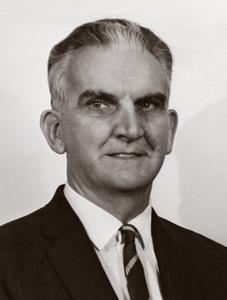 W
WKenneth Ewart Boulding was an English-born American economist, educator, peace activist, and interdisciplinary philosopher. He published over 36 books and over 112 articles. Boulding was the author of two citation classics: The Image: Knowledge in Life and Society (1956) and Conflict and Defense: A General Theory (1962). He was co-founder of general systems theory and founder of numerous ongoing intellectual projects in economics and social science. He was married to sociologist Elise M. Boulding.
 W
WKimberlé Williams Crenshaw is an American lawyer, civil rights advocate, philosopher, and a leading scholar of critical race theory who developed the theory of intersectionality. She is a full-time professor at the UCLA School of Law and Columbia Law School, where she specializes in race and gender issues. Crenshaw is also the founder of Columbia Law School's Center for Intersectionality and Social Policy Studies (CISPS) and the African American Policy Forum (AAPF), as well as the president of the Berlin-based Center for Intersectional Justice (CIJ). Crenshaw is known for the introduction and development of intersectionality, the theory of how overlapping or intersecting social identities, particularly minority identities, relate to systems and structures of oppression, domination, or discrimination. Her scholarship was also essential in the development of intersectional feminism which examines the overlapping systems of oppression and discrimination to which women are subject due to their ethnicity, sexuality and economic background.
 W
WShmuel Noah Eisenstadt was an Israeli sociologist. In 1959 he was appointed to a teaching post in the sociology department of the Hebrew University in Jerusalem. From 1990 until his death in September 2010 he was professor emeritus. He held countless guest professorships, at the University of Chicago, Harvard University, the University of Zurich, the University of Vienna, the University of Bern, Stanford and the University of Heidelberg, among others. Eisenstadt received a number of prizes, including the Balzan prize and the Max-Planck research prize. He was also the 2006 winner of the Holberg International Memorial Prize. He was a member of many academies, including the American Academy of Arts and Sciences and the Advisory Editors Council of the Social Evolution & History Journal. His daughter Irit Meir was a noted scholar of Israeli sign language.
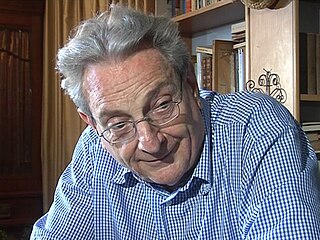 W
WYehuda Elkana was a historian and philosopher of science, and a former President and Rector of the Central European University in Budapest, Hungary.
 W
WCharles J. Fillmore was an American linguist and Professor of Linguistics at the University of California, Berkeley. He received his Ph.D. in Linguistics from the University of Michigan in 1961. Fillmore spent ten years at The Ohio State University and a year as a Fellow at the Center for Advanced Study in the Behavioral Sciences at Stanford University before joining Berkeley's Department of Linguistics in 1971. Fillmore was extremely influential in the areas of syntax and lexical semantics.
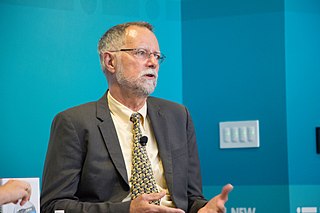 W
WRobert Harris Frank is the Henrietta Johnson Louis Professor of Management and a professor of economics at the Samuel Curtis Johnson Graduate School of Management at Cornell University. He contributes to the "Economic View" column, which appears every fifth Sunday in The New York Times. Frank has published on the topic of wealth inequality in the United States.
 W
WHarold Garfinkel was an American sociologist, ethnomethodologist, and a Professor Emeritus at the University of California, Los Angeles. He is known for establishing and developing ethnomethodology as a field of inquiry in sociology. He is probably best known for his classic book, Studies in Ethnomethodology, which was published in 1967, a collection of articles some of which had previously been published. Selections from unpublished materials were later published in two volumes: Seeing Sociologically and Ethnomethodology's Program. There was also a collection of 'studies of work' by his students which he edited.
 W
WHenry Louis "Skip" Gates Jr. is an American literary critic, professor, historian, filmmaker, and public intellectual who serves as the Alphonse Fletcher University Professor and Director of the Hutchins Center for African and African American Research at Harvard University. He rediscovered the earliest African-American novels, long forgotten, and has published extensively on appreciating African-American literature as part of the Western canon.
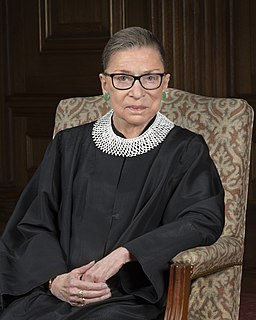 W
WJoan Ruth Bader Ginsburg was an associate justice of the Supreme Court of the United States from 1993 until her death on September 18, 2020. She was nominated by President Bill Clinton, replacing retiring justice Byron White, and at the time was generally viewed as a moderate consensus-builder. She eventually became part of the liberal wing of the Court as the Court shifted to the right over time. Ginsburg was the first Jewish woman and the second woman to serve on the Court, after Sandra Day O'Connor. During her tenure, Ginsburg wrote notable majority opinions, including United States v. Virginia (1996), Olmstead v. L.C. (1999), Friends of the Earth, Inc. v. Laidlaw Environmental Services, Inc. (2000), and City of Sherrill v. Oneida Indian Nation of New York (2005).
 W
WDeborah M. Gordon is a biologist, appointed as a professor in the Department of Biology at Stanford University.
 W
WAdrianus Dingeman (Adriaan) de Groot was a Dutch chess master and psychologist, who conducted some of the most famous chess experiments of all time in the 1940s-60. In 1946 he wrote his thesis Het denken van den schaker, which in 1965 was translated into English and published as Thought and choice in chess. De Groot played for the Netherlands in the Chess Olympiads of 1937 and 1939. In 1973 he became member of the Royal Netherlands Academy of Arts and Sciences.
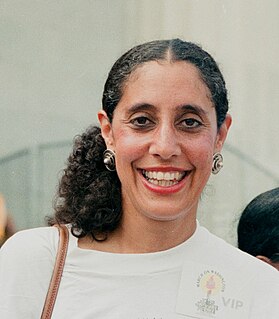 W
WLani Guinier is an American civil rights theorist. She is the Bennett Boskey Professor of Law at Harvard Law School, and the first woman of color appointed to a tenured professorship there. Guinier was a Professor of Law at the University of Pennsylvania Law School for ten years, before joining Harvard Law School in 1998. Guinier's work includes professional responsibilities of public lawyers, the relationship between democracy and the law, the role of race and gender in the political process, college admissions, and affirmative action.
 W
WEszter Hargittai is a communication studies scholar and Professor at the University of Zurich.
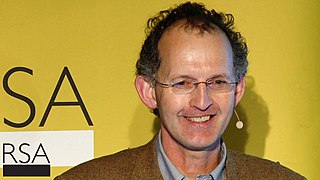 W
WMiles Ronald Cole Hewstone is a British social psychologist who is well known for his work on social relations.
 W
WDouglas Richard Hofstadter is an American scholar of cognitive science, physics, and comparative literature whose research includes concepts such as the sense of self in relation to the external world, consciousness, analogy-making, artistic creation, literary translation, and discovery in mathematics and physics. His 1979 book Gödel, Escher, Bach: An Eternal Golden Braid won both the Pulitzer Prize for general nonfiction and a National Book Award for Science. His 2007 book I Am a Strange Loop won the Los Angeles Times Book Prize for Science and Technology.
 W
WDaniel Kahneman is an Israeli psychologist and economist notable for his work on the psychology of judgment and decision-making, as well as behavioral economics, for which he was awarded the 2002 Nobel Memorial Prize in Economic Sciences. His empirical findings challenge the assumption of human rationality prevailing in modern economic theory.
 W
WElihu Katz is an American and Israeli sociologist and communication scientist, usually associated with uses and gratifications theory. He is known for his work with Paul Lazarsfeld in the field of mass communication, most notably for developing the theory of the two-step flow of communication. He is currently Emeritus Professor of Communication at the Annenberg School for Communication of the University of Pennsylvania.
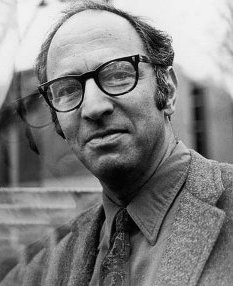 W
WThomas Samuel Kuhn was an American philosopher of science whose 1962 book The Structure of Scientific Revolutions was influential in both academic and popular circles, introducing the term paradigm shift, which has since become an English-language idiom.
 W
WCatharine Alice MacKinnon is an American radical feminist legal scholar, activist, and author. She is the Elizabeth A. Long Professor of Law at the University of Michigan Law School, where she has been tenured since 1990, and the James Barr Ames Visiting Professor of Law at Harvard Law School. From 2008 to 2012, she was the special gender adviser to the Prosecutor of the International Criminal Court.
 W
WPaul Robert Milgrom is an American economist. He is the Shirley and Leonard Ely Professor of Humanities and Sciences at Stanford University, a position he has held since 1987. Milgrom is an expert in game theory, specifically auction theory and pricing strategies. He is the winner of the 2020 Nobel Memorial Prize in Economic Sciences, together with Robert B. Wilson, "for improvements to auction theory and inventions of new auction formats".
 W
WGeorge Armitage Miller was an American psychologist who was one of the founders of cognitive psychology, and more broadly, of cognitive science. He also contributed to the birth of psycholinguistics. Miller wrote several books and directed the development of WordNet, an online word-linkage database usable by computer programs. He authored the paper, "The Magical Number Seven, Plus or Minus Two," in which he observed that many different experimental findings considered together reveal the presence of an average limit of seven for human short-term memory capacity. This paper is frequently cited by psychologists and in the wider culture. Miller won numerous awards, including the National Medal of Science.
 W
WElijah "Lije" Millgram is an American philosopher. He is E. E. Ericksen Professor of Philosophy at the University of Utah. His research specialties include practical reason and moral philosophy.
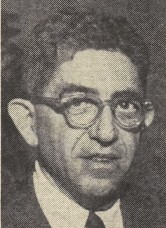 W
WErnest Nagel was an American philosopher of science. Along with Rudolf Carnap, Hans Reichenbach, and Carl Hempel, he is sometimes seen as one of the major figures of the logical positivist movement. His 1961 book The Structure of Science is considered a foundational work in the logic of scientific explanation.
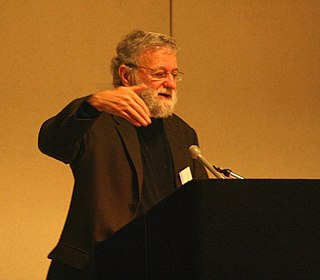 W
WDonald Arthur Norman is an American researcher, professor, and author. Norman is the director of The Design Lab at University of California, San Diego. He is best known for his books on design, especially The Design of Everyday Things. He is widely regarded for his expertise in the fields of design, usability engineering, and cognitive science. He is a co-founder and consultant with the Nielsen Norman Group. He is also an IDEO fellow and a member of the Board of Trustees of IIT Institute of Design in Chicago. He also holds the title of Professor Emeritus of Cognitive Science at the University of California, San Diego. Norman is an active Distinguished Visiting Professor at the Korea Advanced Institute of Science and Technology (KAIST), where he spends two months a year teaching.
 W
WRobert Nozick was an American philosopher. He held the Joseph Pellegrino University Professorship at Harvard University, and was president of the American Philosophical Association. He is best known for his books Philosophical Explanations (1981), which included his counterfactual theory of knowledge, and Anarchy, State, and Utopia (1974), a libertarian answer to John Rawls' A Theory of Justice (1971), in which Nozick also presented his own theory of utopia as one in which people can freely choose the rules of the society they enter into. His other work involved ethics, decision theory, philosophy of mind, metaphysics and epistemology. His final work before his death, Invariances (2001), introduced his theory of evolutionary cosmology, by which he argues invariances, and hence objectivity itself, emerged through evolution across possible worlds.
 W
WAnatol Rapoport was an American mathematical psychologist. He contributed to general systems theory, to mathematical biology and to the mathematical modeling of social interaction and stochastic models of contagion.
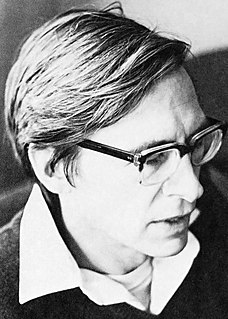 W
WJohn Bordley Rawls was an American moral and political philosopher in the liberal tradition. Rawls received both the Schock Prize for Logic and Philosophy and the National Humanities Medal in 1999, the latter presented by President Bill Clinton, in recognition of how Rawls' work "helped a whole generation of learned Americans revive their faith in democracy itself."
 W
WEdward Wadie Said was a professor of literature at Columbia University, a public intellectual, and a founder of the academic field of postcolonial studies. A Palestinian American born in Mandatory Palestine, he was a citizen of the United States by way of his father, a U.S. Army veteran.
 W
WRichard Sennett is the Centennial Professor of Sociology at the London School of Economics and former University Professor of the Humanities at New York University. He is currently a Senior Fellow of the Center on Capitalism and Society at Columbia University. Sennett has studied social ties in cities, and the effects of urban living on individuals in the modern world.
 W
WBradd Shore is an American cultural anthropologist who is best known as a leading authority on Samoan culture and a foundational theorist of the cultural models school of cognitive and psychological anthropology. He holds the Goodrich C. White Chair of Anthropology at Emory University and is the current Department Chair. He is the former Director of the Emory Center for Myth and Ritual in American Life and is also a past President of the Society for Psychological Anthropology.
 W
WVernon Lomax Smith is an American economist and professor of business economics and law at Chapman University. He is formerly a professor of economics and law at George Mason University, and a board member of the Mercatus Center. He was also a founding board member of the Center for Growth and Opportunity at Utah State University.
 W
WThomas Sowell is an American economist, social theorist, and senior fellow at Stanford University's Hoover Institution.
 W
WDeborah Frances Tannen is an American author and professor of linguistics at Georgetown University in Washington, D.C. Best known as the author of You Just Don't Understand, she has been a McGraw Distinguished Lecturer at Princeton University and was a fellow at the Center for Advanced Study in the Behavioral Sciences following a term in residence at the Institute for Advanced Study in Princeton, NJ.
 W
WArnold Thackray is a science historian who is the founding president of the Chemical Heritage Foundation, the Life Sciences Foundation, and Science History Consultants. He is an emeritus professor at the University of Pennsylvania.
 W
WCharles Tilly was an American sociologist, political scientist, and historian who wrote on the relationship between politics and society. He was a professor of history, sociology, and social science at the University of Michigan from 1969 to 1984 before becoming the Joseph L. Buttenwieser Professor of Social Science at Columbia University.
 W
WEdward Rolf Tufte is an American statistician and professor emeritus of political science, statistics, and computer science at Yale University. He is noted for his writings on information design and as a pioneer in the field of data visualization.
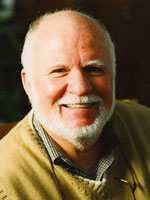 W
WBillie Lee Turner II is an American geographer and human-environmental scientist, member of the National Academy of Sciences and other honorary institutions. Prominent among the third generation of the Berkeley School of Latin Americanist Geography and cultural ecological research, he has been a leader in bridging this work with the Chicago School of natural hazards and risk research. In August 2008, he took a position as the first Gilbert F. White Chair in Environment and Society at Arizona State University, where he is affiliated with the School of Geographical Sciences and Urban Planning and the School of Sustainability. In November 2015, he was named a Regent’s Professor, the highest faculty honor that can be bestowed by Arizona State University.
 W
WFrance Winddance Twine is a sociologist, documentary filmmaker, a visual artist and an enrolled citizen of the Muskogee Creek Nation of Oklahoma. A native of Chicago, she is the granddaughter of Paul Twine, Sr., a Civil Rights activist and founding member of the Catholic Interracial Council of Chicago, a Civil Rights organization that brought Irish, Italian, German, Polish and Black Catholics together to fight for racial justice. Dr. Twine is a Professor of Sociology at the University of California at Santa Barbara where she regularly teaches courses on race, gender and class inequality, sociology of the body, sociology of work, girlhood, assisted reproductive technologies and qualitative research methods.
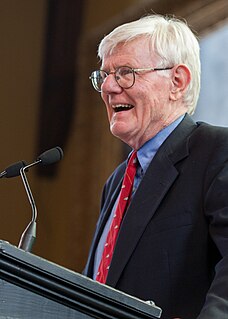 W
WGordon Stewart Wood is an American historian and university professor at Brown University. He is a recipient of the 1993 Pulitzer Prize for History for The Radicalism of the American Revolution (1992). His book The Creation of the American Republic, 1776–1787 (1969) won a 1970 Bancroft Prize. In 2010, he was awarded the National Humanities Medal.
 W
WIrvin David Yalom is an American existential psychiatrist who is emeritus professor of psychiatry at Stanford University, as well as author of both fiction and nonfiction.